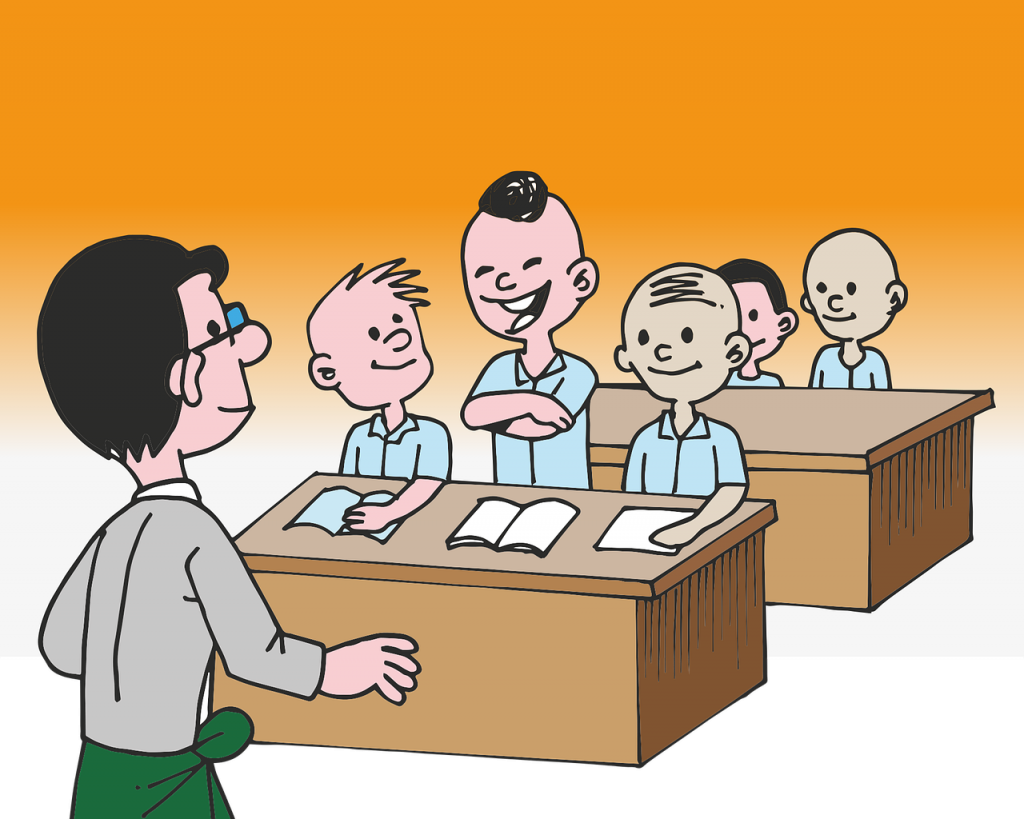
Teachers are the mentors of learners when it comes to learning, but they can also be of help in stabilizing a student’s mental health. Teacher and student relationship happens inside the classroom and goes for hours in a day. Fact is, some kids see their teachers more often than their actual parents who were busy working. Thus, as teachers, you also need to “check” their mentalhealth conditions just like how you check their papers and tests.
Tips To Give Support to Students
As an older person whom they look up to, it is quite expected when students lean on you for advice, when they are in trouble at school, with their classmates and even in their home. Though some of these aspects are not within your jurisdiction, still, you have to respond accordingly. True, you are not professionally trained for this, but you need to learn how to communicate with your student with issues. This is especially true when it comes to mental health conditions. Note that there is a significant number of students currently experiencing anxiety or depression. And more than anything else, they need all the support that they can get. “Instead of spiraling downward into increasing anxiety and depression, we’re able to stop that spiral and respond in a more appropriate fashion,” says Saundra Jain, MA, PsyD, LPC.

Key Messages
- Show compassion. Students don’t need you to put a solution to their problems. Most of the time, they just need someone to talk to and someone who will hear them out. Take time in doing this. Let them speak their hearts out to get off the burden they are carrying inside.
- Listen and understand what they are going through. Make sure that you have the full knowledge of their problems so that you will know how to help your student.
- Accept them. Be non-judgmental, calm and patient. Make sure that you project an open mind. Provide understanding without being judgmental. It will encourage the student to open up more because she is assured that he can trust you and your impression of him will not change based on what he has revealed.
- Know when to ask for help. Make it clear to the student that you are in no position to help him with all his problems, but you can assist him in finding the right people who can address his issues. It will help if you accompany the student to the right person. This may be a counselor or therapist.
- Don’t hesitate to provide aid. If you think that the problem is that big and severe, but it is beyond your capability of helping, turn to experts. Try to elicit the help of a therapist. Note that “The foundation of therapy is based on the relationship you build with your therapist. When seeking someone out it’s important you feel comfortable with them.” Elana Schechtman-Gil LMFT said. The year level head or the school principal can also create means on how to address the problem or contact a specialist who can help.
There are times wherein students would not open up to their teachers with their problems. They would just act it out like being rude and is disruptive in class. If this behavior continues for quite some time, then, there is indeed a problem. Instead of going head to head with them, try to be a parent to those problematic students. With that, below are the indicators that a student is having some type of mental disorder.

- The person keeps on talking or is always thinking about their issues. They have no other things to think about but their problems, and this will make them feel even more depressed.
- A student is displaying behavior that is totally out of character. Examples of this are very noisy when he usually is quiet or when he is bullying others which are not usual.
- Displaying unnecessary outbursts. Yelling or having episodes that are totally out of the student’s character is also a sign.
- Sleeping problems or not getting that much sleep at all is a symptom. Or this could also be the other way around. It could be that the student is sleeping too much. “The amount of sleep you get and the quality of that sleep can actually affect your physical and mental health in ways you don’t anticipate.” Julia Hogan, LCPC explains.
- Eating habits have changed rather drastically is an issue. This also includes not eating at all or vomiting the food eaten.
- Another sign is getting into dangerous activities that could risk his life. Examples of this are participating in illegal car race events, starting fights, wrestling and so many more.
- Daring circumstances, having unsafe sex, trying drugs and the likes are also signs.
- Getting away from friends and not attending social events are symptoms, as well. Not responding to any messages or emails, or shutting out other people are also problems.
- Threatening others and having that talk of hinting that he will commit suicide is a significant sign. Do not take this for granted.
- Acting as if nobody cares and has that thinking that no one would care if they also disappear is a problem.
These are just some of the common signs that will tell you when someone is having some issues in terms of mental aspects. If your student has these make sure that you are available for him in times when he needed someone to talk to.